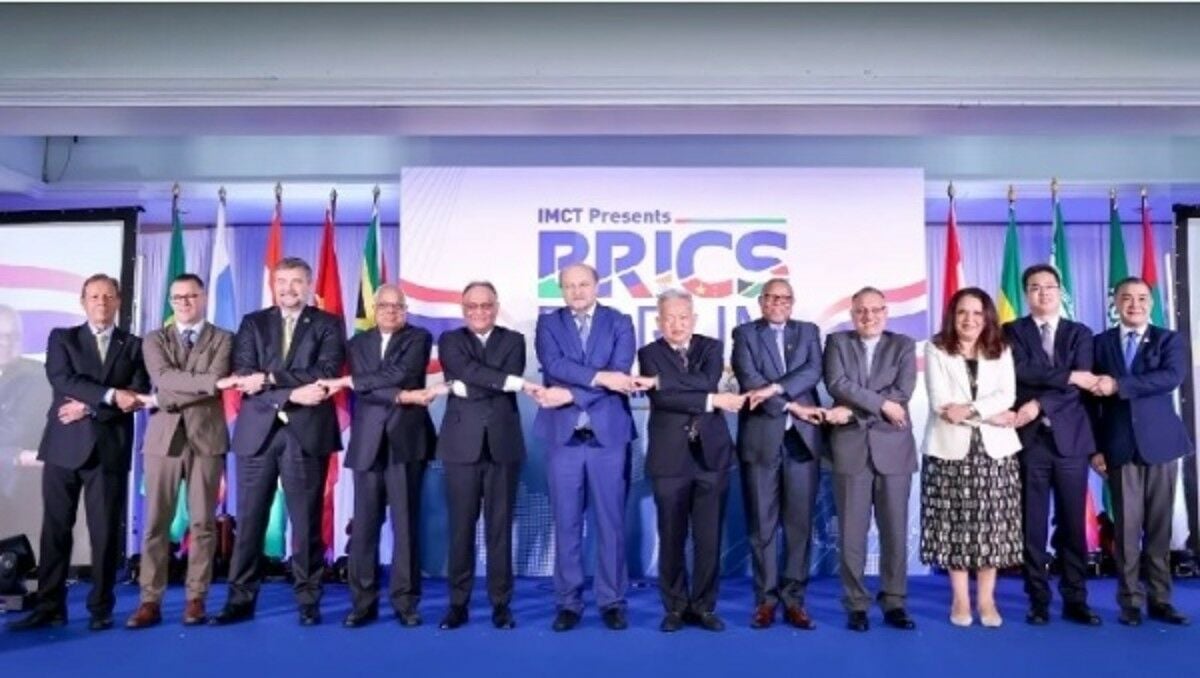Thailand’s BRICS ambition: Gateway to economic power?

As Thailand contemplates joining the BRICS economic bloc, the nation’s public and private sectors are buzzing with anticipation over the potential opportunities and benefits. The growing excitement was evident at the International Media Club of Thailand (IMCT)’s inaugural seminar in Bangkok last Thursday, August 22, where two panels dissected the pros and cons of the Brazil, Russia, India, China, and South Africa (BRICS) membership.
The seminar featured ambassadors from BRICS countries who delved into how the bloc’s expansion might reshape global economics and politics. Russian Ambassador Evgeny Tomikhin set the tone by describing Thailand as a very strong candidate for membership, while Indian Ambassador Nagesh Singh lauded Thailand as a balanced country and a bridge builder. Both diplomats stressed that BRICS isn’t anti-Western, but rather aims for a more equitable global order.
“BRICS is not about choosing sides. We’re expanding not just for the sake of it, but to include nations with shared interests and the willingness to collaborate.”
The ambassadors also highlighted the bloc’s push towards using national currencies for trade, citing Russia and China’s significant shift to rubles and yuan in their transactions. The potential for a new BRICS payment system, as supported by India, was discussed as a means to reduce reliance on traditional currencies.
Private sector leaders were equally enthusiastic. Vitaly Kiselev, Thai-Russian Chamber of Commerce President, predicted that BRICS membership could unlock lucrative markets for Thai goods, boosting the nation’s status within ASEAN. Neil van Heerden, chair of the South Africa-Thai Chamber of Commerce, pointed to the bloc’s vast market potential, noting a 70% surge in South Africa’s trade with BRICS since 2017.
However, the path to membership is not without challenges. Panellists raised concerns about regulatory hurdles, varying labour standards, and the potential for brain drain. Overcoming these obstacles, they agreed, would require robust collaboration and innovative solutions, reported The Nation.
Latest Thailand News
Follow The Thaiger on Google News:


























